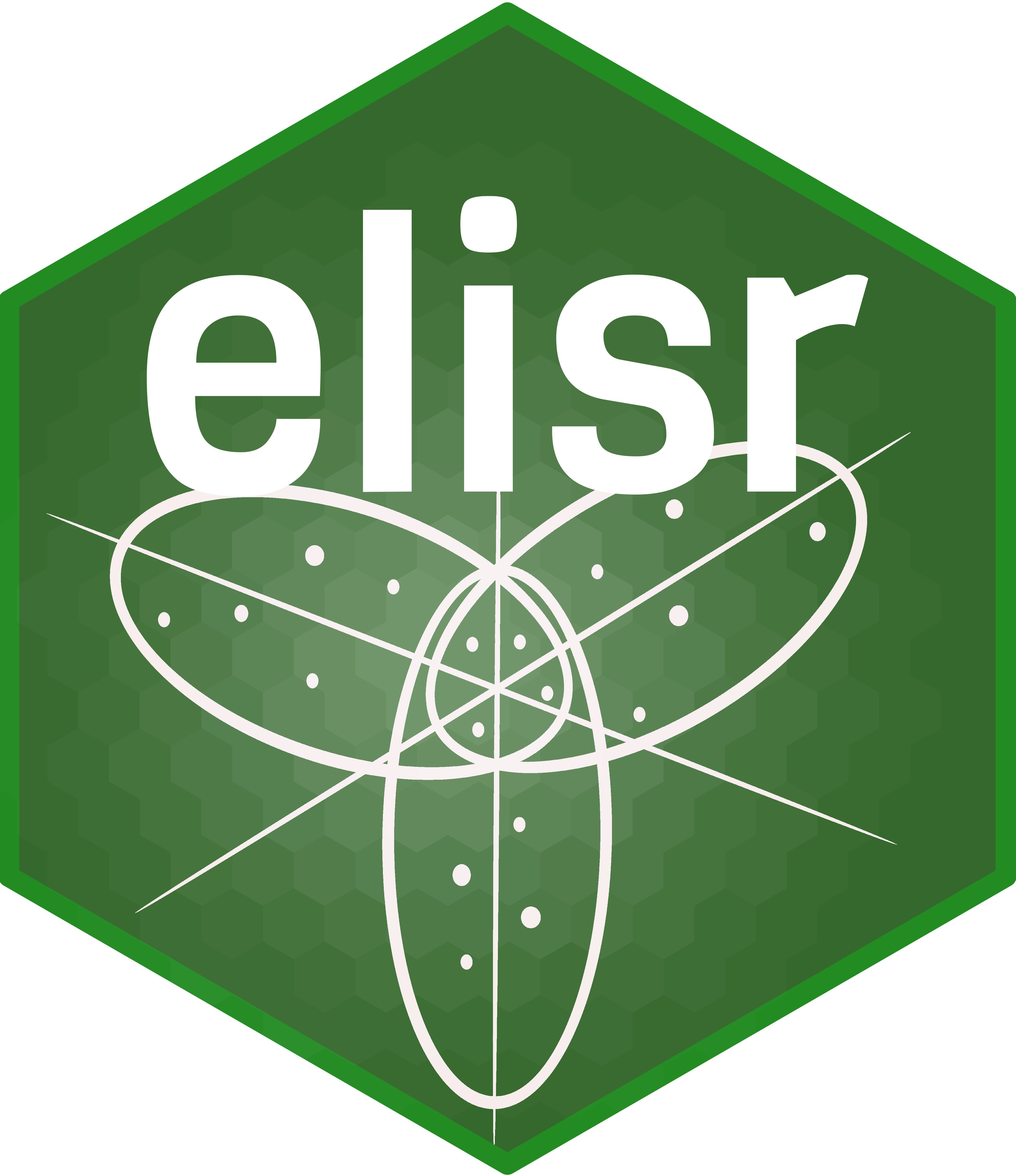

An alternative to Exploratory Factor Analysis (EFA) for metrical data in R. Drawing on characteristics of classical test theory, Exploratory Likert Scaling (ELiS) supports the user exploring multiple one-dimensional data structures. In common research practice, however, EFA remains as go-to method to uncover the (underlying) structure of a data set. Orthogonal dimensions and the potential of overextraction are often accepted as side effects. ELiS confronts these problems. As a result, elisr provides the platform to fully exploit the exploratory potential of the multiple scaling approach itself.
disjoint() & overlap()elisr comes with two user functions:
disjoint() and overlap().
disjoint() searches highly consistent scale fragments
in the haystack of variables.overlap() enhances disjoint()’s fragments
– selecting items so that they can overlap across fragments.With a typical case in mind, the practical difference between them
is: disjoint() is set up to produce sharp and disjoint
scale fragments. Sharp and disjoint fragments feature a high internal
consistency. Thus, items within such a fragment share a strong linear
relationship with each another. The thing with disjoint()
is, it allocates any item to a particular fragment. This is
whereoverlap() steps in. Passing fragments to
overlap(), the function’s underlying algorithm tries to
enrich each fragment. The emerging scales are flavored with items from
your specified data frame, but the algorithm ignores those that are
already built into a fragment (step 1). Later on, we will talk about the
inclusion criterion in greater detail. To get to the point: Using
overlap() an item can appear in more than one of the
enriched fragments. In doing so, we overcome the splitting effect
induced by disjoint(). These basic principles will unfold
one step at a time in the companion.
Note: The last section is part of
elisr’s vignette. If you are interested, you can read on there.
There are multiple ways to get elisr. I’ll show you
three, sorted by different levels of R expertise (pro, skilled and
novice). If you don’t understand a given installation instruction – move
on to the next.
If you are an advanced R user simply download elisr from
github (e.g., with devtools).
I stick with devtools and install_github()
to install elisr, but feel free to use whatever you
like.
devtools::install_github(sbissantz/elisr)To install the development version, copy and paste the following
snippet into your R console. You will be guided through the installation
process. What the snippet does, is (1) to check if the R package
devtools is available on your system and if not (2) asks if
you want to install it. If so, (3) it installs elisr via
devtools’ function install_github(). After the
installation you need to load and attach elisr. Simply type
library(elisr) and elisr warmly welcomes
you.
if (!requireNamespace("devtools", quietly = TRUE)) {
msg <- "devtools is not installed, want to install it? Type 'yes' or 'no'."
answer <- readline(prompt = message(msg))
switch(answer,
yes = {
install.packages("devtools")
devtools::install_github("sbissantz/elisr")
},
no = {
stop("devtools is required to proceed the installation of elisr.",
call. = FALSE)
},
stop("Please answer 'yes' or 'no'.")
)
} else {
devtools::install_github("sbissantz/elisr")
}